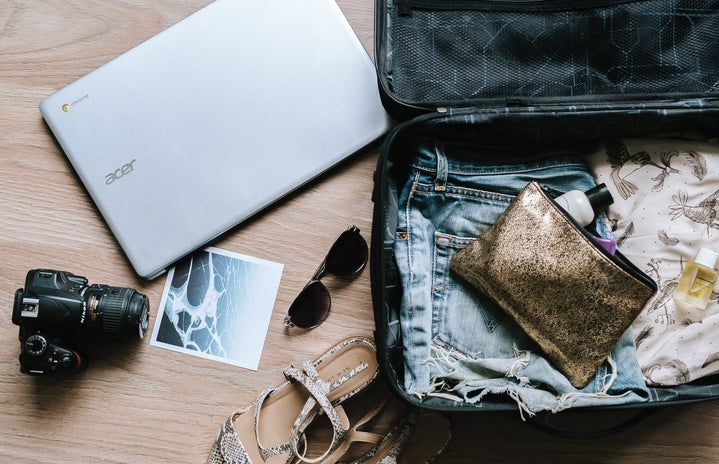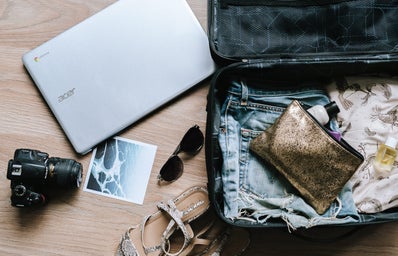So you’re thinking about going abroad for a semester…
Whether it’s to fulfill a degree requirement, spur of the moment decision, or anything in between, studying abroad is an amazing opportunity to not only be educated in another country but to immerse yourself in the culture as well! Both in and out of the classroom, studying abroad will be a new (and hopefully enjoyable) experience. But there are a few things you should be aware of before booking that ticket. Here are some steps I wish I knew before my abroad experience and I hope they’ll help you as they helped me.
Step 1: Collect your travel documents
- Before embarking on your study abroad, check to see which documents you have and which you will be needing. A good place to look is the U.S. Department of State international travel page at https://travel.state.gov to find latest visa information, safety updates, and environmental concerns in the place you will be going.
- Check your visa and passport status EARLY. If you need a passport or need to get it updated, get an appointment ahead of time to be safe in case of delays. Check to see if a visa is needed or if your passport suffices, https://www.USA.gov has a visa page for you to check the county’s visa status in regards to yours as a US citizen or if your passport was supplied from a different nation.
- Don’t forget your COVID vaccination card (get updated vaccines if required).
- Book your flight and transportation. As we all know just the traveling portal of study abroad can be stressful and expensive so once you’ve organized your official documents book your transport early to get the best price and (potential) return on your tickets.
Step 2: Pack efficiently
- When going abroad you will inevitably purchase things, so in your initial travels just pack what you need and will be comfortable in. This tip goes for clothes (especially shoes!), electronics, media devices, and even face/skin care. Remember you can buy it once you arrive.
- Another tip is to place valuables in secure and locked baggage. Place them in hidden pockets or at least pockets with zippers and wallets and money pouches should always be close at hand and accounted for.
- In regards to luggage, 1 to 2 bags is enough plus your backpack and/or day bag. I recommend an empty duffel for your souvenirs or weekend trips. Don’t overpack what you “think” you’ll need, just take what’s important and small things will be available once you get there.
Step 3: Money, Money, Money
- If you need to exchange cash, do it before you enter the airport; don’t try to get a lot of bills at the gate, the fees will be ridiculous and you’re at risk of being scammed or having your card read. Don’t pull too much at once after you arrive.
- Pick a wallet and credit/debit card holders that are immune to scanners as well.
- DON’T FORGET— check in with your banks before leaving and let them know you’re going to be out of the country so your cards are not blocked or deactivated.
- Check to see if your credit/debit cards have an international charges, it’ll help you discover which cards have the least amount or no fees
- Budget. Even though you’ll be in school, you’ll probably have more free time than you’re used to. Most schools don’t do meal plans like in the US so having a rough financial plan is good so you can get your necessities without having to eat out all the time. Also, countries don’t tax the way it’s done in the US so make a plan so you can have fun but still can cover expenses such as food and extracurriculars (like travel).
Step 4: Important Locations and Numbers
- Always have the address of the school and the accommodations you will be studying/staying at saved.
- Make sure the international students office is a known address as well.
- Have the phone numbers of your campus advisor at both institutions saved.
- Know where the nearest embassy and airport is also located in case of lost documentation or emergency.
Step 5: Communications
- Talk with your service provider to ensure you have an international plan or a SIM card ahead of time. Or, buy an international phone upon arrival in your country of study if needed.
- Organize with the provider whether or not you’ll need an international number before you take off.
- Don’t forget to buy a portable wifi if needed and check data plans
- Turn off data roaming!!! The fees are not worth it and if you are not on a plan it’ll (literally) cost you later.
Step 6: Communicate with Family
- This might seem self explanatory but make sure your loved ones know where you are at all times. Share those important locations and numbers from step 4 and keep them updated! (No just via social media)
- Keep your location on or download an app like Life360 if needed but stay connected the entire time.
- Download WhatsApp to have wifi accessible and encrypted communication (this app is a life saver!)
Step 7: Research Ahead of Time
- When traveling abroad you’ll most likely have more free time than you would on your normal campus and will be experiencing quite a bit of culture shock so be prepared.
- Look at and download city maps and get of sense of the area and its public transportation
- Find, ahead of time, the famous or infamous places you’d want to visit, make a list of shops/cafes/attractions and buy your tickets early.
- If you are more spontaneous, follow “what’s going on” pages on social media and plan that way but always be aware of where you are and where you’re going and ALWAYS bring a friend until you get settled.
Ok so you’ve got your documents, money, baggage, phone, map, and let everyone in the know aware of what’s going on so now what? Double check your classes and everything with your institution and check in for that flight early and just go. As cliche as it sounds, studying abroad is the adventure of a lifetime so go have it. You’ve done the work and made the plan now all that’s left is to get to your gate and board. I hope you enjoy your time as much as I did mine and remember it’s ok to be nervous, it will be better than you think.
—Safe Travels!


